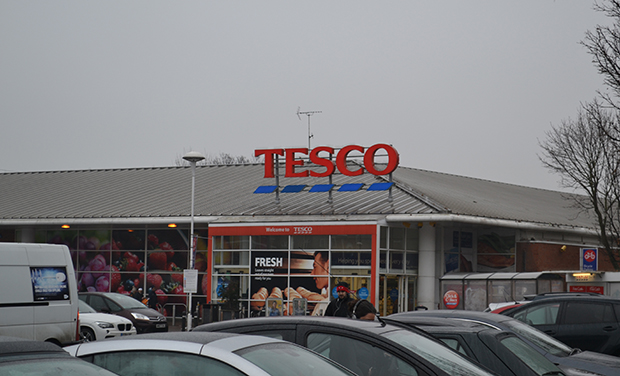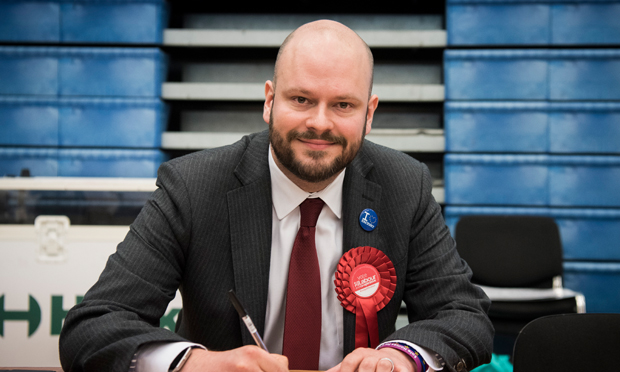Town Hall buys up over £60m worth of property in one-year spending spree

Tesco, Morning Lane
Hackney Council invested more than £63 million in land and properties at four sites in the borough in 2016/17, an investigation has found.
The biggest chunk of money was spent on the Tesco site on Morning Lane, with properties also acquired from Taylor Wimpey on Kingsland High Street and from Trading Acres on Graham Road.
The whopping £55 million outlay for the Tesco land will be funded through a loan from the Treasury-backed Public Works Loan Board (PWLB), while it is understood that the cash for the other land and properties comes from a combination of internal borrowing and “rainy day money”.
Mayor Philip Glanville insisted that these investments were purchased at the “best value for council taxpayers” to generate income to fund services, new homes and jobs.
Details of the purchases were revealed through Freedom of Information (FOI) requests by the Bureau of Investigative Journalism (BIJ) as part of a wider investigation into the practice of councils “gambling” on the property market to generate extra income in the face of government cuts.
The amount Town Halls have spent on these properties has risen sharply from £76.4 million in 2014/15 to £1.4 billion in 2017/18.
The lavish spending has been made possible by councils’ easy access to low interest loans from the PWLB. There are no borrowing limits and they do not have to prove they can afford it – that is left to councillors to decide.
But in April, the government implemented new guidelines aimed at discouraging councils from borrowing money to profit from investments.
Hackney Council defends the practice of buying properties and land as investments by sticking to a conservative philosophy of only purchasing within the borough’s boundaries. It also discounts any risk being posed to public services funded by rental income from its investment properties.
It points out that any decrease in property values would not hit their balance sheet in as immediate a way as it would a private sector buyer – the main priority is ensuring that rent keeps coming in.

Mayor Philip Glanville. Photograph: Hackney Council
Hackney also claims it can use the properties to bring about positive change in the borough, saying it has gone further than a private landlord may have done in ensuring the businesses who rent them pay their employees a living wage.
The council says the land purchased from Tesco on Morning Lane will provide around 270,000 square feet of retail and commercial space and 245,000 square feet for new homes.
At least 20 per cent of those homes would be designated as affordable, which fails to meet the borough’s own target of 50 per cent affordable housing in new developments.
But the Town Hall says the 20 per cent target is the minimum to be provided by Hackney Walk Ltd, the developer constructing the residential units at the site.
The council says Hackney Walk’s planning application will be scrutinised by its planning committee and confirmed that it is subject to the borough’s target for 50 per cent affordable housing.
And according to the Town Hall, the investment properties purchased from Taylor Wimpey at 12, 14, 16 and 25-31 Kingsland High Street for a total of over £5 million will generate income, and it has pledged to use them to “ensure local jobs for these key spaces in Dalston’s town centre”.
The land at 231-237 Graham Road for £3.8 million was purchased from reserves held by the council. As noted in a Town Hall report, the land was acquired to “potentially” combine with an adjacent council-owned property at 333-337 Mare Street – currently leased out to supermarket giant Iceland – to create “a larger and more comprehensive development in the future”.
Mayor Philip Glanville said: “Before the council makes an investment a great deal of work goes into investigating how it will help us meet our long term objectives in terms of generating income, supporting the delivery of services, delivering much needed housing or work-space and wider community benefits.
“We only invest in property in Hackney and when the council acquires properties, each has a specific purpose; investments of this sort do not happen frequently or even regularly, but rather when it is in the best interests of the borough, its residents and businesses.
“When we do acquire a property, this is subject to a public Cabinet decision, purchased at the best value for council taxpayers and where it can help us unlock strategic value such as building much-needed homes, generating income to fund council services, or by creating jobs in our town centres.”
A spokesperson for the Local Government Association (LGA), said: “The money local government has to pay for local services is running out fast and there is a real and growing uncertainty about how local services are going to be funded beyond 2020.”
They added: “Councils face a choice of either accepting funding reductions or having to cut services as a result, or making investments that can secure those services in the long term. In doing so, they have to follow strict rules and assessments to ensure they invest wisely and manage the risk of their investments appropriately.”
Additional reporting by Ed Sheridan
